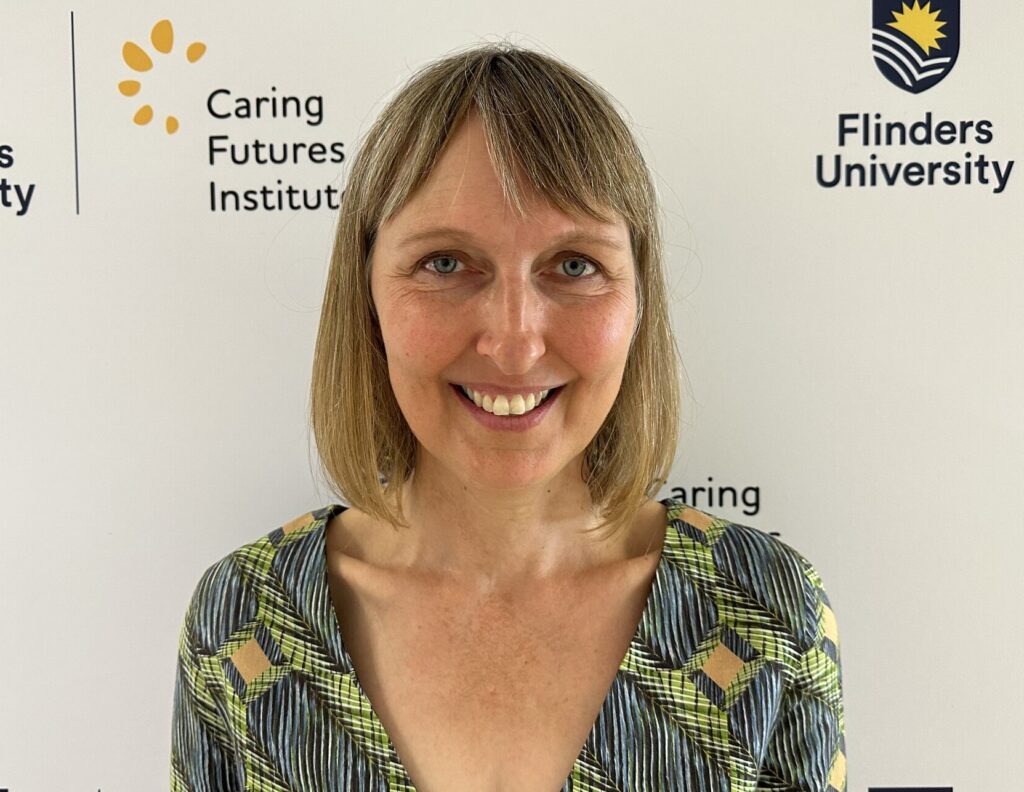Changing the way healthcare staff speak about people living with dementia can lead to significant improvements in care practices, culture, and human connection, new research has found.
Led by occupational therapist Dr Suzanne Dawson at Flinders University and Southern Adelaide Local Health Network, researchers evaluated a language-based intervention known as 'flipping language', testing it in a specialised behavioural unit designed to care for people with extreme behavioural and psychological symptoms of dementia.
In the intervention, staff and families are encouraged to identify words that 'don't land well for them', playfully explore the words and replace commonly used clinical terms. This included replacing "aggressive" or "wandering" with more descriptive, person-centred language that acknowledges the individual's intent and history.

"The language we use in clinical settings doesn't just describe reality-it shapes it," says Dr Dawson from Flinders' Caring Futures Institute.
"By consciously choosing words that focus on a person's experience rather than labelling their behaviour, we're able to connect more deeply, provide more personalised care, and create a culture that's not just clinically safe but emotionally safe too."
The intervention was led by Jenie Aikman, who has lived experience of caring for a family member living with dementia, and was working as a carer consultant on the unit.
The analysis, adapted from a UK-based aged-care staff training program called My Home Life, found that shifting language helped staff understand residents on a deeper level, improving not only documentation but also care delivery.
"Staff reported that while the old language may have been efficient, it didn't actually accurately capture an individual's behaviour," says Ms Aikman, a Carer Project Officer with the South Australian Local Health Network Mental Health (SALHN) Rehabilitation Team.
"Flipping the language meant more descriptive language was used in handovers, increasing the understanding amongst the care staff, which they themselves noted led to a change in their care approach.
"At the same time, family had told us how much it hurt to hear their loved ones described in clinical terms that reduced them to symptoms-whereas the flipped language felt more respectful and empathetic, helping to humanise their loved ones."
Importantly, the research found that this cultural shift didn't require major structural changes-just a commitment to reflection, curiosity, and relational care.
"While the intervention was led by a staff member with lived experience of caring for a loved one living with dementia, we found all staff embraced the change," says Dr Dawson.
"They reported often engaging in informal conversations about language during handovers and team meetings, fostering a culture of openness, psychological safety, and mutual respect."
The authors hope to see the intervention tested in other settings with stigmatising language, such as mental health care.
"This isn't about policing people's language; it's about ensuring dignity for a vulnerable group of our population," says Dr Dawson.
"This study shows that small changes in everyday language can have a profound effect on relationships and outcomes and it should be a consideration for all who work in this space."
The article 'Changing care practices and culture in a specialised unit for people with behavioural and psychological symptoms of dementia' by Suzanne Dawson, Sarah Collyer, Jenie Aikman, Kate Maddigan, Michael Page and Stacie Attrill has been published in the journal Dementia. DOI: 10.1177/14713012251333205.
This research was funded by a Southern Adelaide Local Health Network (SALHN) Enquiry Grant. Kate Maddigan, Nurse Practitioner Candidate, and Dr Michael Page, Head of Unit, co-authors on this paper, were instrumental to the implementation of My Home Life, the broader program that underpins Flipping Language.






